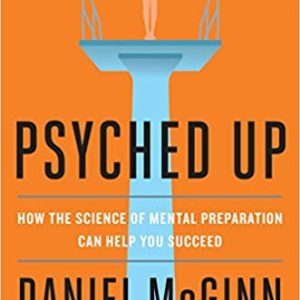When it comes to saving for the future, there’s no substitute for the magic of compound interest. By stashing your cash in the stock market, you’re putting it to work for you — with little extra effort necessary aside from biding your time and waiting…
Of course, knowing how to invest your money, or “allocate your assets,” to use fancy-pants financial planner speak, is a whole ‘nother can of worms. Even if you’ve heard that the key to a healthy investment portfolio is to diversify, it can be difficult to figure out where you’re supposed to start.
ETFs (exchange-traded funds) and mutual funds are both great low-effort ways to purchase a diverse chunk of stocks without having to go out and buy them individually. In both cases, your money will be invested into a wide range of different assets, lowering your total risk while increasing your chances at overall growth.
Rather than putting all your proverbial eggs into one company’s basket of shares, you’ll have assets spread out across a large number of stock options — and you won’t have to spend dozens of hours doing the requisite research and manual transactions you’d otherwise have to to get that kind of broad market exposure.
But what’s the difference between ETFs and mutual funds, and how can you tell which is right for your personal investment goals? Read on to learn more.
What’s the Difference Between ETFs and Mutual Funds?
Mutual funds and ETFs have a whole lot in common. They’re both pools of money that are invested into an array of stocks, bonds, and potentially other securities and assets. These investment allocations are made and managed by third party individuals or corporations, which takes the burden of doing all that stock-buying off your shoulders.
But ETFs and mutual funds do also have key differences that might influence your decision when picking which type of investment is right for your portfolio.
For one thing, mutual funds are actively managed. That means a qualified financial professional is actively watching how the mutual fund’s assets are performing and making adjustments to allocations as necessary. That kind of supervision can help investors feel more secure about the risk they’re taking, though it is always still possible to lose money on the market.
On the other hand, ETFs can be traded on a day-to-day basis, just like individual stocks. Although they’re less likely to be under active management, you can make the decision to buy and sell them yourself whenever you’d like — which gives some investors a welcome sense of control.
ETFs vs. Mutual Funds: Pros and Cons
Although they’re very similar, understanding the drawbacks and benefits of ETFs and mutual funds can help you decide which type of investment will work best for your goals. Here’s a brief overview.
ETFs
- may allow lower start-up investments. In most cases, you can buy a single share of an ETF, which may start at quite a low price depending on their market value that day. Mutual funds, on the other hand, generally have a higher required buy-in threshold.
- may be available at lower fees. Although some mutual funds carry low expense ratios, they’re still usually higher than those of ETFs according to the Investment Company Institute. (In 2016, actively-managed mutual fund carried an average expense ratio of 0.82%, compared to just 0.23% for ETFs.) Mutual funds may also come with additional fees included in that ratio, which may cover costs like marketing and distribution.
- provide greater transparency and flexibility in trading. ETFs can be traded like stocks on a daily basis, and their holdings are generally disclosed daily. Mutual funds, however, can only be bought and sold at the end of the trading day, and rather than market value, they’re priced by Net Asset Value, or NAV, which is an estimated value based on the total number of assets minus the total number of liabilities.
- may treat you better at tax time than mutual funds do. Although you’ll be responsible for taxes on capital gains and dividend income earned through either type of investment, these taxable events tend to occur less frequently with ETFs than they do with mutual funds — which means your total tax liability may be significantly lower.
Mutual Funds
- allow you to trade without paying commissions. If you’re planning on trading your assets on a regular basis, you may benefit from choosing mutual funds over ETFs, since they can be bought and sold without paying additional commissions fees. However, some brokerages offer certain ETFs commissions-free, though they may have higher expense ratios than other ETFs on the market.
- are more likely to be actively managed by a financial professional. While all mutual funds are actively managed, only certain ETFs are — so if you’re looking to outsource your market research to a professional, this might influence your decision. However, even financial professionals make mistakes and inaccurate predictions, and it’s still possible to lose the money you put into a mutual fund.
- allow automatic investments and withdrawals. If you’re into the idea of automating your investment account, you can set up automatic transactions when you invest in mutual funds through a brokerage like Vanguard.
Are ETFs or Mutual Funds Better for Your Personal Portfolio?
As with any financial decision, the person who’s best qualified to decide if ETFs or mutual funds will better serve your financial goals is — you guessed it! — you. Only you know your own familiarity with market trend and your personal risk tolerance.
While both ETFs and mutual funds will provide you broad market exposure at relatively little effort and expense, you may be drawn to one more than the other based on a number of personal factors, such as your available investment capital or how much personal control you want over your portfolio.
For example, if you’re looking to start investing as quickly as possible without a whole lot of extra cash to spare, you might purchase a low-cost ETF — even if only a single share (for now). On the other hand, if you’ve got a significant chunk of savings you want to put to work for you, buying into an actively-managed mutual fund might make better financial sense, and leave you feeling assured that your investments are in good hands, being regularly re-allocated based on up-to-the-moment market performance.

















